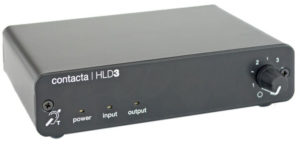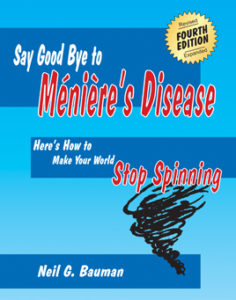by Neil Bauman, Ph.D.
Clinical trials for invisible (internal) hearing aids are underway. They are seen as a boon to those people who refuse to get a hearing aid because of the negative social stigma attached to wearing hearing aids.
In addition, these hearing aids are also waterproof (unless your head leaks!) and obviously will work while you sleep (so you could hear the baby crying—good if you are the caregiver—bad if you are trying to sleep)!
One such device is the Carina, developed by Otologics, of Boulder, CO. The microphone, implanted beneath the skin behind the user’s ear, picks up the sound. The sound signal is processed and amplified and sent to a tiny vibrating transducer that is attached to one of the bones of the middle ear. From there the signal works through the rest of the auditory system the normal way.
According to an article in the Hearing Review,
The device is powered by a battery that is recharged when the user places a small radio transmitter against the head for 60 to 90 minutes. The transmitter is held to the skin by a magnet in the implant. An inductive coil in the implant converts the radio energy to electricity and recharges the battery with it. The battery can stay inside the body for at least 5 years, according to the company, before it needs to be replaced. The implanted components are hermetically sealed together to protect against leaks, so the electronics, microphone, and inductive coil are replaced as well. However, the piston in the middle ear remains in place. (1)
I find the results of the Phase I trials rather revealing. The above article reports,
Twenty subjects with moderate to severe hearing loss were implanted in one ear. (Seventeen of the subjects had worn conventional hearing aids prior to the study.) The subjects did somewhat worse than with the hearing aid they had previously worn: their ability to hear a range of single-frequency tones dropped between 5 and 12 decibels, and mean word-recognition scores dropped from the low 80 percent range to the high 60 percent range.
Notice that not only did they not hear as well, they also lost a fair amount of discrimination. In other words they couldn’t understand as much of what they heard as compared to wearing conventional external hearing aids.
Rather interestingly, “a satisfaction survey found that the subjects felt that the device not only improved their hearing, but also sounded more natural than their old hearing aid” even though the clinical testing results showed otherwise. This reveals just how desperately hard of hearing people want to appear “normal”.
The big question is whether the Carina is worth the extra cost ($19,000.00 in Europe) and the risks associated with the surgery to implant it when compared to conventional hearing aids.
Gerald Loeb, a professor of biomedical engineering at the University of Southern California, is the voice of reason. He argues that:
Implanted hearing aids should outperform conventional ones before they can be considered worth the extra cost and risk. He also questions the emphasis on making an invisible device: “How big an issue is it to have a little appliance on your ear when the whole world is walking around with cell-phone headsets and iPod earpieces?”
I’m certainly not against this new technology. I just think it prudent to wait until all the bugs are worked out, and the cost/risk to benefits ratio improves.
(1) “The Hearing Review”, September 11, 2007



Leave a Reply